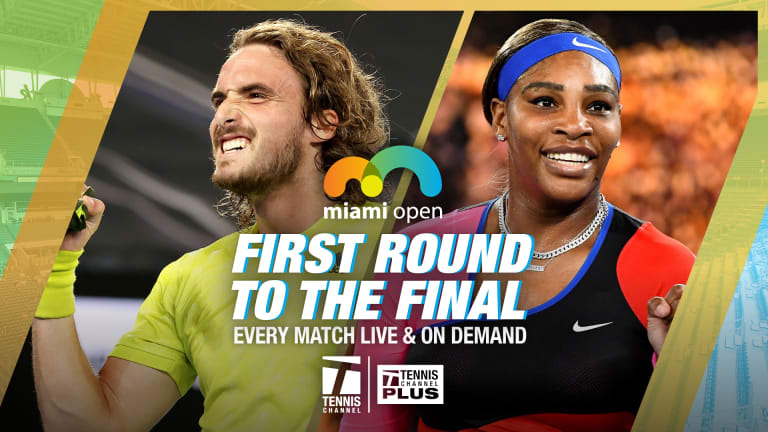ATP St. Petersburg, Russia
Emerging from reflective quarantine, Dinara Safina eyeing next chapter
By Mar 19, 2021ATP St. Petersburg, Russia
"That cold-blooded feeling is finally back": Taylor Fritz regains former on-court mentality
By Nov 01, 2021ATP St. Petersburg, Russia
Botic Van de Zandschulp stuns Andrey Rublev in St. Petersburg quarters
By Oct 29, 2021ATP St. Petersburg, Russia
On his 24th birthday, Taylor Fritz beats pal Tommy Paul in St. Petersburg Open second round
By Oct 28, 2021ATP St. Petersburg, Russia
Andrey Rublev, Denis Shapovalov move through to St. Petersburg quarterfinals
By Oct 27, 2021ATP St. Petersburg, Russia
Week in Preview: Thiem leads Dubai field; Stephens returns in Acapulco
By Mar 14, 2021ATP St. Petersburg, Russia
Ranking Reaction: With fourth title, red-hot Andrey Rublev up to No. 8
By Oct 19, 2020ATP St. Petersburg, Russia
Rublev ties Djokovic for most titles in 2020; Zverev soars in Cologne
By Oct 18, 2020ATP St. Petersburg, Russia
Winning homecomings: Zverev and Rublev pick up titles on home soil
By Oct 18, 2020ATP St. Petersburg, Russia
Rublev, Zverev reach finals in St. Petersburg, Cologne
By Oct 17, 2020ATP St. Petersburg, Russia
Emerging from reflective quarantine, Dinara Safina eyeing next chapter
The former world No. 1 looks back on a lockdown that let her face down old demons, and find peace as she prepares to begin coaching.
Published Mar 19, 2021
Advertising
Advertising
Advertising
Advertising

Emerging from reflective quarantine, Dinara Safina eyeing next chapter